Category: LENS Essay Series
Constitutional Law / LENS Essay Series / Presidential Power
11 April 2024

LENS Essay Series: “Curtailing the Executive Emergency Powers: Congress’s Job, the Judiciary’s Headache”
Today Duke Law 3L Anighya Crocker takes on a very timely topic: the scope of the President’s emergency powers and the role Congress can–and should–have in scoping these authorities while not hampering the Executive’s...
Criminal Law / LENS Essay Series / Terrorism
6 April 2024
LENS Essay Series: “From the Halls of Montezuma: The Promise and Pitfalls of Designating Mexican Drug Cartels as Foreign Terrorist Organizations”
Mexican drug cartels present a deadly threat to thousands Americans by trafficking fentanyl and other lethal poisons into the U.S. A number of steps have been taken against the cartels, but should the U.S.....
International Law / Law of War / LENS Essay Series / Use of Force
27 March 2024
LENS Essay Series: “Reviving the Right to Rescue: Analyzing International Law on the Use of Force for Hostage Rescue in the 21st Century”
One of the grimmest aspects of recent conflicts has been the proliferation hostage-taking. While this unconscionable tactic has been part of warfare since virtually the beginning of armed conflict, it has taken on new...
International Law / LENS Essay Series / Use of Force
8 March 2024
LENS Essay Series: “Bomb Thy Neighbor: How U.S. Military Force Against Mexican Drug Cartels in Self-Defense Would Violate International Law”
With tens of thousands of Americans being killed each year by illegal drugs, some respected authorities have suggested using military force against the Mexican drug cartels pouring their deadly poison into the U.S.. While...
International Law / Law of War / LENS Essay Series
20 February 2024
LENS Essay Series: “Mind the Gap? Jus as Bellum and Jus in Bello in the Era of Hybrid Warfare”
Do you know what “hybrid war” means? Does international law consider it “war” or “peace”? How should the law assess it? Does it matter? In “Mind the Gap? Jus ad Bellum and Jus in...
LENS Essay Series / Terrorism
23 October 2023
LENS Essay Series: “Financial Jihad: Combating the Use of Virtual Assets in Terrorist Financing”
Lawfire® readers who have been following the war between Hamas and Israel may have read media reports about how cryptocurrency has played a role in financing Hamas (as well as the Palestinian Islamic Jihad...
Law of War / LENS Essay Series / Science and Technology / Ukraine
7 August 2023
LENS Essay Series: “‘Point and Shoot’: How Technology Blurs the Lines Between Civilians and Combatants”
Could using a cell phone get a civilian lawfully targeted in war? Maybe. The Ukraine conflict has seen many uses of technology–new and old–that are relevant not only with respect to the current fighting,...
Cyber / Law of War / LENS Essay Series / Science and Technology
25 July 2023
LENS Essay Series: “Not Just Words: Grappling with the Doxing of Civilians in War”
Do you know what “doxing” (sometimes spelled “doxxing”) is? Do you understand how it might be used in wartime? How should the law of armed conflict treat it? The latest installment of the LENS...
Autonomous Weaponry / Law of War / LENS Essay Series / Science and Technology
3 July 2023
LENS Essay Series: “Wartime Propaganda in the Age of Generative Chatbots”
Do you know what generative artificial intelligence (AI) is? Do you know how its use in future conflicts could, among other things, super-empower propaganda? Today’s post can help to answer those questions and more....
Business / LENS Essay Series / Science and Technology
23 March 2023
LENS Essay Series: Balancing strong intellectual property protections against urgent national security needs
“Technology,” scholars tell us, “has permitted the division of mankind into ruler and ruled.” While Americans have no desire to rule mankind, they certainly don’t want adversaries wielding high-technology thinking they could use it...
About Maj. Gen. Charles J. Dunlap, Jr., USAF (Ret.)

DISCLAIMER Please read
Duke University Privacy Statement
Recent Posts
- Podcast: “Business and American National Security: A Conversation with SEC Commissioner Caroline Crenshaw”
- Guest Post: Prof Pete Pedrozo on “Military Operations in International Airspace”
- LENS Essay Series: “Uploading Culture: Navigating the International Humanitarian Legal Framework Governing Cultural Property in the Metaverse”
- Guest post: “Resource Extraction in Outer Space – Pathways for the Future”
- Podcast: BG David Mendelson on “LOAC in 21st Century Battlespaces”
Subscribe to Lawfire
Your email:
- February 2024
- January 2024
- December 2023
- November 2023
- October 2023
- September 2023
- August 2023
- February 2023
- January 2023
- December 2022
- November 2022
- October 2022
- September 2022
- August 2022
- February 2022
- January 2022
- December 2021
- November 2021
- October 2021
- September 2021
- August 2021
- February 2021
- January 2021
- December 2020
- November 2020
- October 2020
- September 2020
- August 2020
- February 2020
- January 2020
- December 2019
- November 2019
- October 2019
- September 2019
- August 2019
- February 2019
- January 2019
- December 2018
- November 2018
- October 2018
- September 2018
- August 2018
- February 2018
- January 2018
- December 2017
- November 2017
- October 2017
- September 2017
- August 2017
- February 2017
- January 2017
- December 2016
- November 2016
- October 2016
- September 2016
- August 2016
- February 2016
- January 2016
- December 2015
- November 2015

Subscribe to Lawfire RSS
Which program are you applying to?

Accepted Admissions Blog
Everything you need to know to get Accepted

July 19, 2022
How to Get Into Duke Law [Episode 481]

Podcast: Play in new window | Download | Embed
Subscribe: Apple Podcasts | Google Podcasts | Spotify | Android | Stitcher | TuneIn
Hear about possible changes to the law admissions process and how to get accepted [Show Summary]
Mark Hill, Assistant Dean of Admissions at Duke Law, has worked in admissions for twenty years. In this episode, he shares his thoughts on how law schools will be affected by a potential recession and the possible elimination of a test requirement . Mark explores how applicants, especially those hoping to get accepted to Duke, should handle the shifting landscape.
(Please note: Between the recording and publication of our interview, Mark Hill was promoted to Assistant Dean of Admissions at Duke Law. The recording has his old title; the show notes reflect his new title.)
Interview with Mark Hill, Assistant Dean of Admissions at Duke Law [Show Notes]
Thanks for joining me for the 481st episode of Admissions Straight Talk . Are you applying to law school this cycle? Are you planning ahead to apply to law school next year or later? Are you competitive at your target programs? Accepted’s Law School Admissions Quiz can give you a quick reality check. Just go to accepted.com/law-quiz , complete the quiz, and you’ll not only get an assessment but also tips on how to improve your qualifications and your chances of acceptance. And it’s all free.
I’m delighted to have an Admissions Straight Talk , Mark Hill, Assistant Dean of Admissions at Duke Law . Mark earned his bachelor’s degree in Cultural Anthropology from Duke, and then later earned a master’s in Higher Ed from Northwestern, where he also served as Assistant Director of Admissions. In 2002, joined Duke Law as an Admissions officer. Since 2013, he has served Duke Law as Senior Director/Assistant Dean of Admissions.
Can you give us an overview of the more distinctive elements of the Duke Law School JD program? [2:21]
The way that I think about it, there are two elements that characterize Duke. One is that we’re among a handful of really top-tier national law schools with students who come from all over and have really great job prospects all across the country. Most of our grads don’t stay in North Carolina. They’re looking elsewhere. There’s a handful of law schools like that.
The other thing that makes us distinctive is that we have a relatively small class size. We’re in a smaller city and so we’re a smaller school. We can really give individual attention to students. We help everybody who comes here craft their own course through the opportunities at Duke to get to where they want to end up.
Because it’s a smaller school and a smaller city, we really attract folks who are intending to be full-time law students. They’re focused on engaging with one another and with their professors. I suppose it’s not for everybody, but for people who want that kind of full-on focused experience, it can be really great.
I’ve often mentioned a couple of distinctive dual degrees. We have two JD/LLM degrees that can be completed in the three years that it would take to do a JD so they don’t add any additional time. You can get a really good concentration and an LLM focusing either on international and comparative law and all the spectrum of the things that means from public law to finance and corporate transactions. The other one focuses on law and entrepreneurship. Maybe you want to be a lawyer who works in the startup space or who works with venture capital. Maybe you have entrepreneurial ideas of your own. Maybe you just want to work for law firms that help provide legal services to those kinds of companies. The JD/LLM in law and entrepreneurship is a great thing there. Those are Duke-specific dual degrees. Of course, we have dual degrees with graduate programs like JD/MBA but I like to mention those as things that are particularly distinctive about Duke.
This part of North Carolina has a lot of tech and startup activity because of Duke, UNC, and North Carolina State which are three major research universities in this area. A lot of big tech companies are actually moving in here like Google, Apple, and Meta. It’s a natural fit not only because there’s a growing demand for lawyers with those skills across the board but also because Duke is in a really good place to help our students connect with some experiences in that realm.
Is the dual degree three years or is there an additional year required? [5:26]
You do them both in three years. One component of it is a summer experience that happens in the summer after the first year of law school. The international LLM students will go to the Netherlands and study at the University of Liden. We help them line up a placement with a public interest or organization or law firm outside of the U.S. Similarly, there’s a startup boot camp for the LLM/LE students either here in North Carolina or sometimes a Silicon Valley program. That’s part of the way that you get some additional academic credit and it allows you to complete the degrees in three years with no additional time on the back end.
In the second year of the combined degree program, do students go for a typical internship? [6:12]
During the pandemic, we saw a surge in applications to all law schools. this year, the lsac overall applicant volume is down about 11.3% from last year, but still up a little bit, 3.4% from two years ago. what is duke law experiencing [6:19].
Pretty much the same. We saw a very significant increase in applications for the 2020-2021 application cycle. This year is down a bit from that peak, but still considerably higher than where we had been running pretty steadily around 5,000 applications, more or less, for the years before that. We’re down about 10-15% from that incredible peak previously, but that still was a very strong applicant pool, not only in terms of numbers but quality as well.
Obviously, there’s a lot of talk right now about recession. Do you believe that if a recession hits, it will affect the law school application numbers? How is law school typically affected? [7:32]
I’ve been at Duke for 20 years this fall, so I’ve seen several cycles. A lot of times graduate school applications are a little bit countercyclical. When the economy is bad, people are graduating from college and think, “Well, I’m not going to get a job right now. Maybe I’ll get some additional qualifications and try to ride this out.” In the 2008 recession, we saw there was an initial increase in applications to law school and then people realized that it actually was also affecting the legal employment market. There was sort of a lag and then a decline after that. I hope it would be the same thing this time around. What we saw was that Duke graduates, and I think graduates from most of the top law schools, still had good job prospects. Even in the downturn, the kinds of law firms that hire our students were still interested in hiring them.
I think our students did a little bit better than the overall job market in the previous recession. We also have great career service folks to help guide them through that process. That’s another example of where being at a school that’s able to pay attention to you as an individual is going to be very helpful.
Duke accepts the GRE and the LSAT, approximately what percentage of the applicant pool is applying with the GRE? [9:32]
This is only the second year for us of accepting the GRE so it’s a relatively small number. It’s only about 3-4% in the last two years of our applicant pool who have applied with GRE scores. Correspondingly, it’s a relatively small number of our offers of admission. It’s been less than five enrolling last year, and probably the same this year as well, who only have GRE scores.
It’s still relatively new for us and a pretty small part of our process. We’re still learning how to evaluate those scores. It presents the results in a different way where you actually have the subsection scores and have to think about, “Well, what does it mean if there’s this big split between the quantitative and the verbal section?” whereas with the LSAT we are more used to thinking about those things rather than just getting an aggregate score.
We did a lot of thinking with our faculty and the admissions committee to determine if it made sense for us to do this. Other schools were starting to accept the GRE, but we didn’t want to do it just because other schools were doing it. We thought a lot about it, and we wouldn’t have done it if we weren’t confident that the GRE could give us useful information that we could make good decisions with.

How should applicants choose which tests to take and submit? [11:40]
I think it depends on their individual circumstances. For us, and for most law schools, we really do know the LSAT better and just feel more comfortable interpreting those scores. But like I said, we never wanted there to be a strategic advantage in choosing one over the other. If you take some practice tests, which one fits with the way that you think about things and the way that you would approach the test ? How much time do you have to prep?
I was actually talking to a prospective student the other day who was saying she was planning to take the GRE, and I was just curious because I haven’t had a chance to talk to a lot of people and I asked how she made that decision. One of the things she stressed was flexibility. The LSAC has done a great job in increasing the availability of the LSAT, the number of times you can take it, and the ability to take it from home. GRE does still offer more flexibility there to take it on your own schedule and that may be appealing for some people. But I think the decision ought to be more based on the individual applicant’s sense of what’s going to fit their timeline best and their testing abilities best and less of a strategic thing about what we’re looking for.
I think one of the things that a lot of schools thought about, and we did as well, is if you are applying to a dual degree program like a JD/MBA while you’re already in a PhD program and have a GRE score. It makes sense if you’ve got a score already to not to take another test just for the sake of that.
If the ABA were to leave it up to schools, whether to require a test or not, do you see Duke retaining the testing requirement, issuing waivers, or making the test entirely optional? [13:44]
Of course, we’re thinking about it. It’s a relatively recent development. I think there still is value in tests. Not just as another hoop to jump through, but I think about how many times we see people who maybe weren’t in a good place when they started their college career and are able to present a test that gives us more grounded confidence that they’re ready to perform well in law school, as opposed to just them saying, “Hey, I know I could do better.” Presenting a test gives us the ability to say there’s a specific reason that we might feel this is somebody we want to admit.
There are a lot of cases like that. I don’t think we would want to go without that. I think we would want to give some flexibility to people if they felt comfortable that their record was strong and said what it needed to say. There are some people who aren’t good test takers and are otherwise really great, and they’ll be glad not to have to do it, but I know there are people because I’ve seen them and we’ve admitted them and we’ve graduated them and they’re great, who really will benefit from another opportunity to say, “Look, my college grades aren’t fully representative of who I am right now.” And I wouldn’t want them to lose the chance to do that.
I hope that we would be able to manage this transition, whatever guidance or instructions we’re given by the ABA, in a way that lets us use the information we have to make good choices and bring people to Duke who are going to do well and make contributions not only to our law school community but to the legal community at large. It’ll be interesting to see what happens.
Can you review Duke’s regular decision and early decision options? [18:02]
This is pretty similar to what people may be familiar with from applying to college. For regular decision, you apply, we’ll review your application and give you a decision. We work on a rolling admissions basis. It’s not necessarily a set timeframe, but we’ll give you a decision at some time after your application is complete without waiting for one date in the spring to release everyone’s decisions. I think that’s one of the big differences between most law schools. For our early decision, we have two rounds of a binding early decision application. As with many colleges, this is early decision, not early action. You’re saying, “If I’m admitted to Duke, I will enroll. I will withdraw my other applications. I won’t submit any more applications.” If you’re admitted, you’re definitely coming to Duke. For folks who really want to be here, that’s a helpful thing.
Sometimes people might want to think about showing that level of commitment and interest. It removes the ability to compare scholarship offers from other schools. I think it’s always important to say that for us, everybody goes through the same scholarship review process. Being on that committee, I know that people admitted early decision received the same scholarship award that they would have received had they been admitted regular decision. But the’re admitted and whether they like that scholarship award or not, they’re still committed to coming to Duke. It removes the chance to say, “Well, this other school gave me more money.” You have to be prepared to take whatever is offered. That’s really important to consider because obviously, the cost of law school is something that is rightly on most applicants’ minds. It should be, if not.
I think about the college admissions process for my colleagues in Duke’s undergraduate admissions office. They probably take at least half of their freshman class through the early decision application. There’s a real strategic sense that for college applicants, you have to be early decision somewhere. I don’t think it’s nearly as big a part of the law school process. Certainly not for us. It averages maybe 15 or 20%.
Do the different application rounds have different acceptance rates? [20:29]
One of the things that I saw when I actually crunched some numbers on this is how highly variable it is. It really just depends on who applies early decision in a given year, but the criteria are the same. Early decisions really are not as much about comparing to the overall, but asking, “Is this somebody who we think we want to admit?” Overall, we have a target class size, we’re hoping to enroll about 220 students but I don’t have a sense going into the year, how many will be admitted through early decisions.
I think what often happens with people who apply early decision is we might look at them and say, “This is somebody who looks pretty good.” Usually, the people who choose to apply early decision are solid but not at the very top of our applicant pool, because usually those folks know that they’re going to be competitive at a variety of schools. Most of the time, people who are applying early decision are people who are solid students but want to maximize their opportunities and give themselves a little bit of a boost. We know that they’re committed to coming and that they’re really interested in Duke. They’re going to be enthusiastic community members. We might go ahead and admit them. That would give somebody the push to be admitted rather than be put on the waitlist.
That’s sort of the place where it makes a difference, but there’s a lot of variation. Maybe it’s because I read them all at once, but I think there’s a fair chunk of people who apply through early decision because they think it’s going to work a miracle for them even though they’re not competitive candidates.
At Duke Law, is full-time work experience a nice to have, or really important to the admissions committee? [23:17]
The way that it works out is usually that somewhere around a third of our class has just graduated from college. 30 or 40% have spent a year or two doing other things before they start law school. There’s a long tail of people with more substantial careers. That’s the way it works out. We’re not trying to produce those results. That’s just sort of a function of the applicant pool. There are plenty of great folks who are graduating from college who are really thoughtful about their interest in a legal career and confident in where they’re going. They have been involved in their college communities, maybe they haven’t had full-time employment, but have had internships or volunteer experiences such that we really feel comfortable knowing that they know how to work with other people and that they’re going to do well.
One of the things that we think about is not only are you going to engage with your classmates but how are you likely to do in a job interview when you have on-campus interviews? How are you going to do when you have that opportunity? Do you know how to collaborate with other people? That’s one reason that we began requesting when people submit two letters of recommendation , at least one of them does come from a non-academic source. We definitely still want to hear about people’s classroom performance. But if possible, we really like to hear about how they do outside the classroom.
I think that often people who have taken that time to do things before they start law school have benefited from that. They’ve learned some things about themselves. They’ve gotten some life skills. It’s definitely not a must-have. We really take each application and each candidate on their own terms, but more people than not, are getting some experience after they graduate from college. My advice is always that people should think carefully about that. It really should be a specific decision to go straight from college to law school. That shouldn’t be the default.

In terms of work experience or extracurricular experience, do you prefer to see something that’s closely related to law or just something that is meaningful and makes a contribution? [25:58]
We’re not specifically expecting everyone to have had focused experience in the legal world. It makes total sense that lots of people who are thinking about a legal career will have done that. I’m interested in hearing what they’ve learned from that. What did they do? How did that help to shape the direction they think they’re heading? But there are plenty of folks who have had interesting experiences in other disciplines and have realized how that touches on legal issues. We see it a lot at Duke because we have a pretty strong curriculum and faculty in environmental law. You think about the people who have been environmental science majors and have had those kinds of internships. Maybe they’ve worked in that field before they thought about a legal career but they’ve started to see how environmental regulation has been important to the things that they care about. That can work really well.
I also don’t want to discount people who just take a little while and try a bunch of different things before they figure out what direction they’re headed. Maybe all of the pieces don’t fit together in that nice sort of single stream but hopefully, by the time they’re applying to law school, they’re able to pull some of those threads together and say, “Well, I’ve done these different things and this is how I’ve gotten to this point now.” Sure, lots of people will have law firm experience or work in DC or state house legislative work but it’s certainly not a requirement or an expectation.
Should applicants, either in the personal statement or the optional essay, address their interest in attending law school and Duke specifically? [28:09]
I’d love it if they did. Our optional essay one specifically asks that question whereas the personal statement leaves it open. I think more so, somewhere in the course of an application, I really hope to get some insight into why you’re thinking about a legal career. Maybe for some people, that’s going to be much more detailed and fully developed than for others. Tell me why you’ve decided to do this rather than applying to my colleagues across the street at the public policy school or not going to graduate school at all. Why this is the path that you’re following?
Because you have other optional essays you’re able to go in other directions as well. That’s not necessarily the only thing that you’re going to talk about in the Duke application. Some people are applying to ten or fifteen law schools and they may not have delved too deeply into the specific offerings, so hopefully, even if people haven’t seen how those things connect at the time that they apply, if we admit them and have some conversations with them, they’ll find where those things connect.
I would caution people from feeling like they have to have that piece of it in there. Don’t just go to the website and choose a class and a professor where it’s obvious that it’s not super woven into the rest of what you’re talking about. If it’s natural for that to come out, as you write your personal statement or the optional essay, then do it. We’d love to hear it, but don’t feel like you have to force it.
Are there any guidelines on how long essays should be? [30:30]
As long as it needs to be and no longer. Two pages are usually where personal statements end up. That’s fine for the optional essay as well. Don’t write more than you need to write, but I wouldn’t ever want to put a hard and fast page length or character limit and prevent somebody from telling a story that’s more complicated. The important thing is that we want to hear what the applicant has to say about their experiences and what they think we need to know. Sometimes that is more involved. I wouldn’t cut that off, but I would think carefully about how you can say it succinctly because we are reading lots of applications and lots of essays. If I am engaged and interested in what I’m reading, I will never notice how long it is.
Read sample successful law school application essays >>
Does Duke law find addenda useful? [31:41]
Definitely so. The one thing I almost always say when people ask about the biggest mistake I say it’s leaving unanswered questions in an application. If there’s a class or a semester that has some anomalous grades compared to what else we’re seeing, I can make some guesses about what might happen but I shouldn’t have to do that. It doesn’t have to be a lengthy labored explanation. It doesn’t have to be more detailed or more personal than you’re comfortable with. I’ve seen people who have had very difficult personal and family situations and sometimes, I don’t know quite as much about that, but just enough for us to say, “Okay, I understand what was happening there.” I can put that in context.
If there’s a gap in your resume some more details can help us understand. We are well aware that we have been living through a pandemic for the last couple of years and are going to continue to see the effects of that both academically and in terms of the opportunities that people have had for professional experiences. You can give us a little bit of information about that if it’s been a significant effect. I understand that there was a year or a semester or two when most schools went to either required or optional pass/fail grading and things like that. We understand that and we remember it.
What other factors, if any, do you weigh in addition to the test score and GPA? [34:39]
I always like to point out that even those numbers have a lot of qualitative evaluation that goes into understanding what they mean. Beyond that, the things that we have available to us are basically the resume, the essay, and the letters of recommendation. We’re interested in thinking about how people will connect with our community and where they’re going to find opportunities to make a difference. We look at how they’ve been involved in the communities they’ve been part of before . In college, are you able to find things that you care about and put yourself into them in enough depth to make a difference? That could be law-related or it could be something else altogether.
We’re thinking a lot about people’s ability to connect and contribute to a community and their personal qualities. Like I said before, are we going to enjoy being around them? Are they going to have something interesting to say to their classmates? Are employers going to think this is somebody they’d like to hire? That manifests itself in lots of different ways. Not everybody has been president of an organization.
I always tell application reviewers when I do training that we have to remember that there are people who have the luxury and privilege to be able to take unpaid internships on Capitol Hill in the summer. There are people that have to work during the summer or even full-time during the school year. Their resumes are going to look very different, and that’s not a negative. Those are people who show tremendous work ethic and time management. We’re learning different things from that, but that’s not to say that’s not something that we don’t value and see as someone who we think could be a really valued member of our community.
The other thing I’ll say is that the writing is the chance for us to hear an applicant’s voice. It’s a judgment thing, how much they write and what they choose to write about. I like it when I get a full, well-rounded picture of students. The personal statement is required but the two optional essays, and they are truly optional, give you opportunities to present different facets of your experiences and interests. Those are often the people I feel like I know much better after reading an application. I think an applicant is doing a service to themselves to think about how they want to provide that information.
Then recommenders just give us that third-party check on what’s going on. Sometimes they are better advocates for the applicant than the applicant is for themselves. Sometimes they’re not the best writer, and I try to be aware that that’s not something you can hold against the applicant but it gives us a sense of how you’ve done in the classroom, how you engage with your classmates, if you had a job or an internship, and how you handled that kind of professional setting.
I can get a decent sense from glancing at a transcript and a test score of somebody’s academic ability, but they are very, very different when you dig into the other parts of the application. That’s the most interesting and the most rewarding part of it. That’s where people look different and can rise above the pack or not really do themselves as many favors.
How do you view applications from students who’ve had academic infractions or perhaps have a criminal record? [38:56]
A lot of that has to do with how they present that information and to some extent, what the infractions are. In my experience, when we see somebody that we have some concerns about, it comes from feeling like they’re not being fully honest and trying to minimize and deflect responsibility for what happens. People make mistakes. Many of them are quite minor. You don’t always know how to handle being an adult. All kinds of things happen that are minor. Some things are more significant, but especially very minor things. I might have driven above the speed limit once or twice. And if you just say, “Here’s what happened, I understand that it was a mistake and it’s not a pattern,” that kind of disclosure is totally fine. That’s not going to be any speed bump at all. It’s different when people seem like they’re trying to deflect or minimize, especially when it’s a school sanction and we have a letter from the school outlining what happened and it doesn’t quite match up.
We take cases of academic dishonesty more seriously. But again, that’s not something that’s insurmountable. Or even more serious criminal charges. If we feel comfortable that at this moment, you’ve recognized the error of your way and that you’re going to be a productive member of our communities as some event, it’s certainly possible to get past that. We just take them as they come. The really important thing is people need to be honest and upfront about their disclosure. Don’t make us wonder is there something more here that we need to be digging into.
Does Duke law consider update letters from applicants who have something significant to tell you after they submit their application and before hearing back from you, or perhaps if waitlisted? [41:40]
Sure. Any additional information that people would like to have considered is definitely welcome to add to the file. We love to have them by email. Sometimes people will call me up and want to talk about things. I can talk to you, but I’m not the only person who needs to know this information so just write it down for me. Sometimes they’re significant things like if a grade has changed or they get an internship. We’d love to hear that. We’ll always add things to the application file and consider them as part of our review.
Right now, we’re in the middle of waitlist season and receiving information from applicants. If somebody is on the waitlist , I hope they will check in with us. I would love to hear substantive updates if they have them. People who are graduating from college may have received honors or have summer plans that they didn’t know about when they submitted their application. We say in the information we provide to folks who are on our waitlist, even if it’s not a specific piece of news, just checking in every now and then to keep on the radar and allow us to know that they’re interested is actually very helpful. I encourage applicants to use judgment. Don’t check in with us every day, but periodically, even if you don’t have anything specific to say because if it’s two weeks from now and we have the chance to admit people from the waitlist, we’re much more likely to consider folks who we know have recently touched base with us. The people who we haven’t heard from since February or March, who knows what’s happened to them? Substantive updates are helpful for waitlisted applicants but also keeping the lines of communication open too.
It’s a very fluid position on the part of law schools, but also on the part of the applicant. Everybody has their own timeline for how long they can hang on and be considered on a wait list before they say, “I have to put down a deposit on an apartment. I have to bow out just for my own mental health. I need to commit to what I’m doing in the fall.” Some people will want to do that in April. Some people will wait until August before they do that, but I don’t know for any individual person. Knowing if somebody would be willing to consider an offer of admission is really helpful for us.
What is a common mistake you see applicants making during the application process? [44:23]
I said before, leaving unanswered questions so I won’t repeat too much of that.
One lesson that I learned very early on in my professional career before I was in higher ed at all that I think about is that everybody that you interact with in the admissions process is getting an impression of you. When you come to our office to take a tour, the person who is sitting at the reception desk is getting an impression of you. Sometimes, I’ll come out after a tour and go, “Hey, what did you think of those people?” The same goes for email communication. It is in some ways an informal medium, but know who you’re talking to and be polite and respectful of their time. I try to be when I’m communicating with prospective students or admitted students and returning the favor to us is nice to do.
Where can listeners learn more about Duke School of Law? [47:03]
Sure, https://law.duke.edu/ is the website. The admission subsection there has all the details about how to apply. The only other thing I’ll direct you to is the section called Areas of Focus, which is a nice hub of all the faculty, courses, and news for our corporate law, criminal law, environmental law, and law and technology areas.

Related links:
- Duke Law Admissions
- Duke Law Areas of Focus
- Are You Ready for Law School? , Accepted’s Law School Admissions Quiz
- Accepted’s Law School Admissions Services
Related shows:
- What to Do if the LSAT Becomes Optional
- How to Get Into UVA Law
- How to Get into USC Gould School of Law
- UCLA Law School: How to Get Accepted
- 4 Reasons for Rejection and How to Respond
- What Happened to the LSAT-Flex?
Podcast Feed
About Us Press Room Contact Us Podcast Accepted Blog Privacy Policy Website Terms of Use Disclaimer Client Terms of Service
Accepted 1171 S. Robertson Blvd. #140 Los Angeles CA 90035 +1 (310) 815-9553 © 2022 Accepted


A look into changes in Duke Law School's admissions process in response to affirmative action ruling
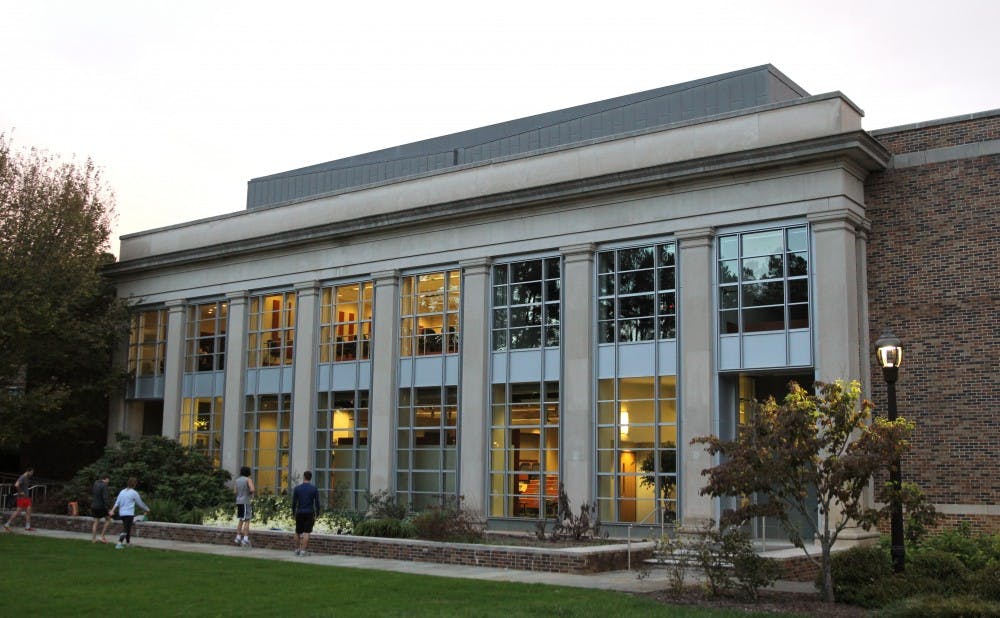
The Duke Law School.
In the wake of the Supreme Court’s recent ruling overturning race-based affirmative action, law schools across the country, including Duke, have made several changes to their application components for the 2023-24 admissions cycle.
The court’s June decision came only two months before Sept. 1, the most popular date to open applications for law schools. Some of the essay prompt changes were therefore announced on short notice.
Duke Law School previously required a personal statement and offered applicants two optional essay prompts: a diversity statement and a statement of interest. After the Supreme Court’s decision, Duke Law School kept the personal statement and the optional statement of interest, but replaced the diversity statement with short essays.
Applicants are now required to submit one or two essays from a list of six prompts. Some of the new essay prompts invite applicants to share their “exposure to a diversity of perspectives and experiences” or their “special background,” while others center on applicants’ thoughts on equal justice, interest in public service, commitment to free expression and understanding of ethical leadership.
In previous years, many law schools required a personal statement and offered an optional diversity statement. For the 2023-24 admissions cycle, Harvard Law School has replaced the prompts with two new required essays, a statement of purpose and a statement of perspective. Several other law schools have also changed their application essay prompts, including Yale Law School .
“What they have out of this cycle is kind of testing the waters, if you will, to see if it's going to produce the kind of information they want with applicants,” pre-law advisor Patrice Barley said.
According to Barley, the lack of uniformity among law school essay prompts means applicants will have to spend more time tailoring their essays to every law school they apply to.
“Since the pivot was so late in the application cycle, I think that law schools will be granting quite a bit of grace in the essay reading process this year, because applicants didn't have a lot of time to grapple with them,” Barley said.
Revamped essay prompts are not the only change coming to law school admissions. The logic games section of the Law School Admission Test will be replaced by either a reading comprehension or logical reasoning section beginning in August 2024. The changes will not affect the current admissions cycle.
Duke softball falls to Missouri in Game 2 of Super Regionals, awaits decisive game Sunday
'a different sense of purpose': how a family tragedy changed dyson williams’ outlook on lacrosse and life, duke softball wins first super regional game against missouri as curd pitches dominant outing, get the chronicle straight to your inbox.
Signup for our weekly newsletter. Cancel at any time.
Share and discuss “A look into changes in Duke Law School's admissions process in response to affirmative action ruling” on social media.
facebook twitter
DSG announces laundry fees to be included in tuition beginning 2025-26
Duke women’s golf ends postseason run in stroke play, places 14th at ncaa championship, morris, stone lead no. 6-seed duke baseball to acc tournament win against virginia tech, 2023-24 chron15: icons, 2023-24 chron15: leaders, 2023-24 chron15: pioneers.
What are your chances of acceptance?
Calculate for all schools, your chance of acceptance.

Your chancing factors
Extracurriculars.
How to Write the Duke University Essays 2023-2024

Duke is consistently ranked within the top 10 colleges in the country, making it an incredibly selective school. With tens of thousands of applicants vying for a spot to be a Blue Devil, each and every aspect of your application will have to be unique and impressive—especially your essays.
For the 2023-2024 application cycle, Duke is requiring all students to answer one prompt and then they have the choice to answer up to two additional prompts. For students planning on studying abroad at Duke Kunshan or taking a gap year, there are additional prompts as well. In this post, we will go over all of the Duke prompts and breakdown how to write the essays so you can maximize your chances of admission to Duke.
Read these Duke essay examples to inspire your writing.
Duke University Supplemental Essay Prompts
All applicants.
Prompt 1 (required): What is your sense of Duke as a university and a community, and why do you consider it a good match for you? If there’s something in particular about our offerings that attracts you, feel free to share that as well. (250 words)
Prompt 2 (optional): We want to emphasize that the following questions are optional. Feel free to answer them if you believe that doing so will add something meaningful that is not already shared elsewhere in your application. Five optional questions are available – a maximum of 2 can be selected. (250 words for all)
- Option 1: We believe a wide range of personal perspectives, beliefs, and lived experiences are essential to making Duke a vibrant and meaningful living and learning community. Feel free to share with us anything in this context that might help us better understand you and what you might bring to our community.
- Option 2: Tell us about an intellectual experience in the past two years that you found absolutely fascinating.
- Option 3: We believe there is benefit in sharing and sometimes questioning our beliefs or values; who do you agree with on the big important things, or who do you have your most interesting disagreements with? What are you agreeing or disagreeing about?
- Option 4: We recognize that “fitting in” in all the contexts we live in can sometimes be difficult. Duke values all kinds of differences and believes they make our community better. Feel free to tell us any ways in which you’re different, and how that has affected you or what it means to you.
- Option 5: Duke’s commitment to inclusion and belonging includes sexual orientation, gender identity, and gender expression. Feel free to share with us more about how your identity in this context has meaning for you as an individual or as a member of a community.
Duke Kunshan Applicants
Why do you think duke kunshan university is a good match for you and what special qualities do you feel you could bring to duke kunshan university (200 words), gap year prompt, please describe your gap year plans as you currently are considering them. you are not making a commitment to these plans. (250 words), all applicants—prompt 1, what is your sense of duke as a university and a community, and why do you consider it a good match for you if there’s something in particular about our offerings that attracts you, feel free to share that as well. (250 words)..
Every student applying to Duke will be submitting this “ Why This College? ” essay, so you really need to make yours stand out. Before we talk about what you should do, let’s cover common mistakes to avoid so your essay isn’t generic.
Don’t talk about factors outside of the school’s control like the location, weather, or surrounding city. You might be attracted to Duke because you want to go to a school in the South, but there are hundreds of other schools nearby. This doesn’t tell us anything about Duke in particular.
Don’t make emotional appeals like “ It feels like home ” or “ The campus is so beautiful ”. Contrary to popular belief, statements like these don’t flatter admissions officers because they read them so frequently. Saying something like this is too vague and your limited space would be better served describing resources that make you feel connected to the school.
Don’t regurgitate fun facts and statistics from a campus tour, brochure, or website. Duke doesn’t need to be told how many Nobel prize winners or cabinet secretaries attended, nor do they need to be told about the infamous Duke vs UNC game. Admissions officers especially don’t care about the student-to-faculty ratio or class sizes. Listing these as reasons for attending signals to the admissions committee you didn’t research specific offerings at the school and you might not be as dedicated.
Don’t talk badly about the school. This one should be pretty self-explanatory, but when they ask about your sense of Duke, don’t call it stuffy and pretentious! You are trying to prove your love and devotion to the school, so if you have a negative impression, maybe reconsider why you are applying.
Don’t list out a dozen reasons why you want to go to Duke. We recommend including specific offerings and resources at Duke that excite you, but it’s all about quality over quantity. Spend time explaining why each reason resonates with you or what you hope to get out of the resource or experience. If that means you only have space to include three or four, then that’s okay!
Now that you know what not to do, we’ll share some tips on what you should do in your essay to make it stand out.
Make it personal . Like any other college essay, you need to share information about yourself and your interests to demonstrate to the admissions committee why you belong at Duke. Include anecdotes or details about your experiences to highlight your personal connection to the offerings at Duke.
Include specific resources and opportunities you want to take advantage of. The prompt makes it seem like it is more optional to include offerings that speak to you, but we strongly urge you to include them! Not only does including specific offerings demonstrate the research you’ve done, it also allows you to talk more about your interests and goals through the resources you are attracted to.
Balance academic and extracurricular reasons for wanting to attend. In order to show the admissions committee you are well-rounded, you’ll need to discuss both academic and extracurricular offerings that excite you. Your extracurriculars could be related to the academic topic you’re studying, but make sure to include clubs or communities you want to join so Duke knows you will be active both in class and out.
Draw parallels between yourself and Duke to emphasize why it’s a good fit for you. This might be a little harder to conceptualize and implement in your essay, but you could go about this by finding a club on campus that aligns with one of your extracurriculars, a professor who conducts research on a topic you want to learn more about, or values the school exemplifies that you prioritize.
Have a strong narrative that still reads like a story. Just because this essay might not be as creative or story-based as other college essays doesn’t mean it can’t have a narrative style. Make sure you have an exciting hook at the beginning and a conclusion that ties everything together.
Have some fun! Your essay should still have a voice that is uniquely yours, so if that means you like to use humor, go for it. Also, you can mention fun aspects of the college experience at Duke—basketball is a huge part of the Duke experience. Just be sure that you frame it as an additional bonus of attending Duke and not the primary reason for choosing the school.
Putting all of that together, take a look at what a sample student might write:
“You’d be surprised by the power 1080px by 1920px can wield. Within those 3×6 inches, violence has been incited, hate crimes have been encouraged, and a democracy was nearly toppled. Behold, the 21st century’s mega-weapon: Instagram stories.
Media and politics are intrinsically linked, especially in the USA. My generation is faced with the burden of freeing democracy from the tight grip of the Instagram story, Twitter thread, and Facebook group. Luckily, with Duke’s commitment to forging positive change, I won’t have to go at it alone. At the Sanford School of Public Policy, I’ll join a community of people dedicated to saving our democracy.
Through the Dewitt Wallace Center for Media and Democracy, I’ll delve into the complicated relationship between media and politics to better equip myself to one day shape federal policy surrounding media practices. Courses like Can Journalism Save Democracy? and Intro to Digital Culture: Media Theory, Politics, and Aesthetics signal that I’ll find a community of students and faculty equally passionate about this field. By my junior year, I’ll take the knowledge I’ve gathered in class and apply it on the Hill with Duke in DC.
Duke is a place where I’ll learn how to fight most effectively for media that promotes healthy political discourse. In between my Instagram stories of the blue devils crushing UNC and the picturesque Chapel, expect many posts on the latest article from the Sanford Journal of Public Policy, announcements for upcoming guest speakers, and information on how to protect American democracy.”
All Applicants—Prompt 2 (Optional)
We want to emphasize that the following questions are optional. feel free to answer them if you believe that doing so will add something meaningful that is not already shared elsewhere in your application. five optional questions are available – a maximum of 2 can be selected..
Before getting started with the optional prompts, be sure to carefully read the instructions. You can respond to none of these, one prompt, or a maximum of two prompts.
While it may be tempting to only complete the one required essay, we always recommend completing all the prompts available to you, as it only gives you another chance to make a lasting impression on your application. It also shows admissions counselors that you are truly invested in Duke, and may even be the deciding factor of your application.
Since these prompts are optional though, you want to take special care to not repeat anything in your application, especially since Duke said so themselves. For example, if you already talked about Model UN in your Common App essay, there’s no need to write another essay about it. If only one of the optional prompts speaks to you, that’s fine as well.
All Applicants—Prompt 2, Option 1
We believe a wide range of personal perspectives, beliefs, and lived experiences are essential to making duke a vibrant and meaningful living and learning community. feel free to share with us anything in this context that might help us better understand you and what you might bring to our community. (250 words).
This is one instance of the very common diversity prompt . When colleges have a diversity prompt, they want to know about your own personal background and how it has influenced your worldview and perspectives.
A quick note if you intend to write about your racial background: In June 2023, the United States Supreme Court struck down the use of affirmative action in college admissions. The ruling, however, still allows colleges to consider race on an individual basis, which is one reason many schools are now including diversity prompts as one of their supplemental essay prompts. If you feel that your racial background has impacted you significantly, this is the place to discuss that.
In general, such a common prompt can be approached with a traditional answer. You might consider answering this prompt with what you think is the most important part of your identity, then a small discussion about how that aspect of diversity is relevant to you and your general life experiences.
Such a response might be written about one of the following scenarios:
- Using your fluency in another language to help members of a specific community.
- Interpreting a text in class differently from your classmates because of your ethnic culture.
- Having a friend of a different background who has changed your perspective on something important.
- Having an illness or disability that helps you view accessibility through a different lens than your peers.
- Being part of a niche interest group/fandom and trying to represent the group faithfully when talking to people who aren’t members of it.
Simply listing things that generate diversity should be avoided. Sure, diversity includes different ethnicities/races, gender identities, sexual orientations, countries of origin, and languages, but writing that laundry list out doesn’t contribute much to your application.
Also, bear in mind that the traditional markers of diversity aren’t the only ones you can discuss. There are other aspects of identity that contribute to a diverse campus, including socioeconomic classes, hometowns, illnesses/disabilities, and even interests or hobbies.
Diversity encompasses all the aforementioned attributes, but you should strive for individuality and specificity in your response. This prompt, like all the others, is an opportunity to showcase your unique life perspective. You don’t want to waste this opportunity by writing down some bland dictionary definitions. Think of what diversity means to you and what you consider to be a particularly significant aspect of diversity. From there, think of personal anecdotes or stories about how that aspect of diversity has contributed to your growth or development as a person.
All Applicants—Prompt 2, Option 2
Tell us about an intellectual experience in the past two years that you found absolutely fascinating. (250 words).
For this prompt, Duke is looking to hear about your intellectual interests and your approach to learning. You could choose anything; for example, a particular class you took that sparked your interest in a topic, an individual research project you conducted, a book you read that made a strong impression, or an experiment you performed in a science class.
The key for this essay is to really highlight your passion for learning, and the way to accomplish that is to tell the reader everything about the experience so they feel like they are living it besides you. The phrase “ show, don’t tell ” is thrown around a lot when it comes to college essays—this essay will be no exception.
But what does it mean to successfully show your intellectual experience? Let’s dissect an example.
“Debates were my favorite part of my AP US History class. At the end of every unit, each person in the class would be assigned a historical figure and we would debate a prevalent issue for the period. The best one, hands down, was the debate about the ratification of the Constitution. Representing James Madison, I advocated for a separation of powers. I also pushed for the inclusion of unalienable rights. The fast-paced environment of kids in my class engaging in productive debate was so exciting to see.”
While the excerpt above does technically check the box of describing an intellectual experience this student enjoyed, this is far from what you should submit if you want to be a competitive applicant. How can we make this better? Starting with the hook, never restate the prompt. The first line of your essay shouldn’t be used to tell us what the experience was, rather it should set the scene so the reader is prepared to immerse themselves in the experience, for example:
“Accusations flew across the circle of desks haphazardly gathered in the center of the room; she was an elitist forgetting about the yeomen while he was as backwards as King George.”
This hook immediately brings action and excitement, causing the reader to ask questions which makes them more interested to keep reading. Not only that, by including details relevant to the academic topic (yeomen farmers and King George) it further demonstrates the student’s knowledge and interest of this subject.
The next two sentences can be improved by making them more concise to cut down on the amount of background needed. You want to keep the essay focused in the moment as much as possible, so rather than zooming out to provide the reader with context, stay in the present:
“With the strike of my US History teacher’s gavel, our debate on the ratification of the Constitution had begun.”
The student then goes on to talk about their contribution to the debate, which is important to include, but we can make it stronger. Again, the key is to stay in the story and tell it in present tense with an active voice. Focus on how you viewed and approached the situation rather than what actions you took. Not only will this make the writing more engaging, it will also make it naturally easier to express your fascination with the experience—which is the whole purpose of this essay at the end of the day.
“Donning the tricorn hat of James Madison, I turned to Federalist friends on my right—including Hamilton and Adams—and sized up my foes: the Democratic-Republicans. Coming out of the gate strong, Jefferson insisted a document that enumerates rights, limits rights. How wrong he was! Before another member of my group could speak, I was on my feet conjuring a picture of the society we just escaped that lacked documentation of unalienable rights. Quoting Locke and Voltaire from memory, I watched as my opponents scrambled for a rebuttal.”
Notice the difference between the imagery and flow of these sentences compared to the original example? Each line moves the story along, while continuing to provide details for imagery and to highlight the student’s passion for the topic. There’s no need for them to tell the reader they found the experience enjoyable or exciting, because details like the student embodying the historical figure (ie “Federalist friends…and foes”), their inner monologue (“How wrong he was!”), their excitement (“I was on my feet”), and their dedication (“Quoting Locke and Voltaire from memory”) show the reader why they loved this intellectual experience.
As you go about writing, follow these tips to beef up your writing and take it from basic and boring to engaging and informative.
All Applicants—Prompt 2, Option 3
We believe there is benefit in sharing and sometimes questioning our beliefs or values; who do you agree with on the big important things, or who do you have your most interesting disagreements with what are you agreeing or disagreeing about (250 words).
This prompt is all about internal beliefs and values. Whether you choose to write about an agreement or disagreement, at the heart of your essay, you need to share one of your important values with the admissions committee. Naturally then, an integral piece in choosing this essay is having a core belief or value that is central to your personality. If nothing jumps out at you, then maybe this isn’t the prompt for you.
If religion is important to you, this prompt would be a good opportunity to delve into your religious beliefs. Similarly, you could choose to go into philosophical or ethical debates that you have with people. As you pick a belief or value, keep your audience in mind. You never know who will read your essay, and the last thing you want to do is offend them. It’s generally a good idea to stay away from any beliefs that might be highly controversial or politicized.
Not only do you need a belief or value, you also need to pick a discussion partner that either shares your ideals or challenges them. Luckily for you, because the prompt already asks for you to pick a person, it opens the door for the natural inclusion of dialogue—a great way to spice up your essay and show, not tell!
Maybe you and your best friend get into arguments about whether life exists on other planets when you are going on night-time drives around town. Take the reader into your car—what music is playing in the background, are you cruising down the highway or leisurely rolling through residential neighborhoods? Do you and your friend raise your voices as the argument goes on? Showing what it is like to be there with you during these conversations will make your essay infinitely more engaging to read.
This essay also provides you with a chance to delve deeper into your personality. You can demonstrate character traits you possess in the way you describe your conversation. If you are a detail-oriented person, include the statistics you use to convince someone of your belief. Perhaps you are extremely energetic, in that case, describe how you jump with excitement and your voice gets higher when you agree with someone on an obscure belief.
A common misconception is that admissions officers want to see astute, academic conversations, but that couldn’t be further from the truth. You could write about how you and your sibling get into disagreements about the most powerful superhero or you and your grandma agree your uncle’s cooking is better than your dad’s. Don’t be scared by the prompt asking about the “big important things,” because as long as you provide reasoning as to why your discussion is important to you and your discussion partner, it can make for a good essay.
All Applicants—Prompt 2, Option 4
We recognize that “fitting in” in all the contexts we live in can sometimes be difficult. duke values all kinds of differences and believes they make our community better. feel free to tell us any ways in which you’re different, and how that has affected you or what it means to you. (250 words).
Similar to the first option for Prompt 2, this option is purposefully open-ended to give students the freedom to identify any difference and discuss it. Again, in light of the Supreme Court striking down the use of affirmative action in college admissions, students of color might want to use this prompt to discuss their racial background in their application.
However, since this prompt is very similar to the first, we’d recommend choosing one or the other. There’s no right one to pick—go with whichever you want—but don’t spend both essays (if you choose to submit the maximum of two optional essays for Prompt 2) discussing an aspect of your identity that makes you different or unique. We’d recommend pairing either Option 1 or 4 with either Option 2 or 3.
While this prompt provides students with the opportunity to discuss racial differences they aren’t able to disclose elsewhere, it isn’t limited to discussions of race. Differences can be measured in a variety of dimensions, including:
- Race or ethnicity
- Socioeconomic status
- Family structure
- Gender or sexuality (look at Option 5 if you want to write about this)
- Physical abilities
Regardless of what you choose, your essay must express how you are different, the emotional, mental, and physical effect that has had on you, and the way your difference will make you a valuable member of the Duke community.
An essay where a student describes her family’s low income and the lack of luxuries she’s able to afford as a result doesn’t tell us much about the student. The essay would have more depth if it discussed the embarrassment and isolation she felt when she couldn’t afford the latest trends and wasn’t welcomed by her peers. But the essay shouldn’t stop there. Now that we know about her mental response to her difference, we want to hear about how she views her difference as a source of strength and personal value. So, maybe her classmates’ focus on fashion inspired her to start a thrifting collective at her school where students can donate old clothes and find new ones without spending a lot of money. This experience taught her the value in creating community and compassion.
All Applicants—Prompt 2, Option 5
Duke’s commitment to inclusion and belonging includes sexual orientation, gender identity, and gender expression. feel free to share with us more about how your identity in this context has meaning for you as an individual or as a member of a community. (250 words).
If you want to write about an aspect of your identity or a way you are different and it relates to your gender, sexuality, or sexual orientation, you should choose Option 5 over Options 1 and 4.
In the same vein as the other two options dealing with an aspect of your personality that you want to share with the admissions committee, you want to make sure that you go deeper than simply explaining your gender or sexual identity. The essay needs to go into the personal significance and the way it has shaped you as a person who will join the Duke community.
A good story always needs some conflict, whether it be internal or external, so you might want to start brainstorming by thinking about a moment of conflict that arose related to your gender or sexual identity. Maybe you choose the moment you came out to your family, or you could write about the internal battle to try and fit into societal gender expectations, or possibly you experienced discrimination or harassment as a result of your sexual orientation which emotionally affected you. There are many different ways to approach this prompt, so pick whatever stands out to you as the most consequential for you personally.
For an essay like this, it’s important to share a lot of detail with the admissions committee to ensure your unique perspective and life experiences are fully communicated, but when discussing highly personal and possibly uncomfortable topics, this might be a little difficult. There’s a delicate balance between including enough information to write a strong essay and protecting personal details. To try and address this, focus on actions you took and the emotions that motivated them, without getting too deep into the intricacies of your thoughts.
However, at the end of the day, your college essay has to reveal to the admissions officers what makes you special. If you feel that this aspect of your identity is critical to understanding you, this is the prompt for you. But if you are hesitant to share information on a delicate subject, there is no problem in choosing a different prompt option that would allow you to write more freely.
This prompt is required for students who are applying to Duke Kunshan University through the Duke University application. Duke Kunshan is a partnership between Duke and Wuhan University in China that allows students to receive an education that marries two exceptional universities.
You are asked to submit a pretty straightforward “ Why This College? ” essay for Duke Kunshan, and we would refer you to Prompt 1 in this post to learn more about the tips and common pitfalls to avoid when writing this type of essay.
A key factor to keep in mind when submitting this essay is although Duke will be reading it, it will also be sent to Duke Kunshan who will review it. For that reason, you want to make sure the college you are discussing is specifically Duke Kunshan and not regular Duke. Along those lines, you need to speak highly of Kunshan as its own entity—don’t say you want to attend because you think it will be an easier way to achieve a Duke degree.
While we normally advise against listing a school’s location as a reason for wanting to attend, in the case of an international university, it is okay to discuss your interest in Duke Kunshan because it’s in another country. However, frame it within the context of an interest in experiencing new cultures or an appreciation for Chinese history, culture, or society. Make sure your motivation for attending an international institution is clear in your essay.
The second part of the prompt asks you to consider what you can bring to the school. Just as you would for any other “Why This College?” essay, highlight ways your interests and experiences align with resources and offerings at the university. Your contribution to the campus community can also lie outside of academics. Perhaps you will bring your favorite comfort food recipe with you to support your fellow homesick American students or maybe you will share your adventurous spirit with your more reserved classmates to encourage them to explore a new environment with you.
If you indicate on the Common App that you are considering taking a gap year before enrolling at Duke, you will be required to answer this question. It’s important to note that this isn’t an official declaration of your plans; Duke is using this question to gauge what type of individual you are and how you will use your time productively.
But at the same time, don’t make up fanciful gap year plans like traveling to all seven continents if realistically you know you will spend the majority of your time working at home. You aren’t being judged on how exciting your gap year plans may sound, so be genuine about the plans you are considering.
There are many reasons you might be considering a gap year—from wanting to gain more real-world experience, to financial reasons, to unique opportunities you don’t want to miss, to family commitments—and there are an infinite number of ways to spend your year, whether it’s traveling, getting an internship, working on a campaign, supporting your family, etc.
When it comes to this essay though, there are two primary things you want to convey:
- What you consider to be valuable.
- How you will grow and be enriched from the gap year.
Starting with the first point, the way you choose to spend your gap year is a reflection of the values you find important. Students who want to travel value broadening their perspectives and embracing new experiences, while students who are staying home to help out their parents value family, loyalty, and devotion. Unless you are spending your time in the basement playing video games all day long, you will be doing something that, in your mind, is considered a productive use of time.
When you are discussing your plans, your values should come through. For example, if you are planning to spend the first semester backpacking South America, you wouldn’t just say, “ I will spend the first four months backpacking in China. ” You would instead show the admissions committee why you are driven to take that action: “ During my four months exploring the mountains, valleys, cities, and ancient civilizations of China, I will immerse myself in the culture I’ve felt so distant from as a Chinese adoptee. ”
The second thing your essay needs to discuss is how this experience will enrich you. Or, from Duke’s perspective, how will taking a gap year make you a more valuable member of the campus community? To answer this question, you’ll need to place yourself in a year-from-now you’s shoes and ask how you’ve changed and grown.
Are you more independent? Are you confident? Did you learn a new skill? Have you become a stronger leader? Do you have a new appreciation for learning?
However you think you will grow from this experience, make sure to convey that in your essay. You might also want to explicitly mention what you will bring back to the Duke community, just to reiterate your commitment to attending Duke after your gap year.
Some Final Thoughts
If you choose to respond to the optional Duke supplements, you’ll need to keep a few key strategies in mind. As you draft and revise your responses, remember the following tips, which will help you to optimize your application efforts to Duke as well as any other schools to which you might apply.
Give yourself time. Writing a short essay can often seem like a straightforward and deceptively quick process. Remember, however, that even though the Duke only wants 250 words, you’ll need to achieve the same level of impact in this response as you would with a 650 word essay. Clumsily jumbling together broad and lofty ideas won’t get you far with a 250 word prompt, so leave yourself enough time to plan, draft and redraft your response until it’s ready for submission.
Be specific. Specificity is the not-so-secret ingredient when it comes to writing a successful response. Include anecdotes and examples that tie directly to what you know and value about the Duke campus community. Don’t simply say that you love research or that you want to change the world. Think about the specific experiences you have which exemplify your interests and your academic and professional aspirations.
Be true to yourself. It’s counterproductive to spend hours and hours writing about things that don’t truly matter to you. Be honest! Highlight the things that you care about most and reflect on why they matter to you.
Ultimately, the purpose of any supplemental essay is to give you the opportunity to present yourself, your experiences and achievements from your own perspective using your own words. So have fun with this process. After all, no one could ever be better equipped to showcase you than you.
Where to Get Your Duke Essays Edited
Do you want feedback on your Duke essays? After rereading your essays countless times, it can be difficult to evaluate your writing objectively. That’s why we created our free Peer Essay Review tool , where you can get a free review of your essay from another student. You can also improve your own writing skills by reviewing other students’ essays.
If you want a college admissions expert to review your essay, advisors on CollegeVine have helped students refine their writing and submit successful applications to top schools. Find the right advisor for you to improve your chances of getting into your dream school!
Related CollegeVine Blog Posts

Duke Law Journal
Call for submissions for student online essay competition.
The Duke Law Journal (DLJ) is excited to announce its third online essay competition! The competition is open to all current Duke Law 2Ls who are not on an exclusive journal. Up to two winning submissions will be selected for publication in the DLJ Online in Fall 2024. Author(s) of the winning submission(s) will be awarded a cash prize and Research Editor positions on DLJ .
Essay Topic:
In recognition of the 60th anniversary of the Civil Rights Act, we invite submissions focusing on concepts of justice or civil rights . Both clinical and academic submissions are welcome, and we invite authors to construe this prompt broadly . For example, how are civil rights impacted by other areas of law? How might a certain criminal or civil procedure be changed to achieve more just results? How might, or should, recent Supreme Court decisions impact civil rights or racial justice?
Instructions:
- The essay should be no longer than 5,000 words (including footnotes). Please note, this is an essay, not a student note.
- Essays must be emailed to [email protected] in both PDF and Word formats. a. The subject of the email must start with “2024 Online Essay Competition Submission.” b. The body of the email must include a word count (both with and without footnotes) and the title of the essay.
- The author’s name should not be included in the document.
- Each individual may submit no more than one piece, and submissions must be previously unpublished. Jointly written pieces will be accepted.
Any submissions that fail to follow the above instructions will be automatically disqualified.
Deadline: All pieces must be submitted by Friday, May 10, 2024, at 5:00 pm EST.
For any questions regarding the competition, please email Senior Online Editor, Maggie Ash ([email protected]).
Duke Law > Duke Law Scholarship Repository > Journals > DLJ > Vol. 35 > No. 5 (1986)
Duke Law Journal
An essay on discretion.
George C. Christie , Duke Law School Follow
George C. Christie, An Essay on Discretion, 1986 D uke L aw J ournal 747-778 (1986) Available at: https://scholarship.law.duke.edu/dlj/vol35/iss5/1
Since July 04, 2012
Included in
Law Commons
Advanced Search
- DLJ Website
- Current Issue
- Popular Papers
- Journals at Duke Law
- Repository Home
- Receive Email Notices or RSS
Print ISSN: 0012-7086
E-ISSN: 1939-9111
Duke University School of Law Accessibility Statement | Contact Duke Law | Duke University Home

Choose Your Test
Sat / act prep online guides and tips, why duke essay: 4 tips for a great essay.
College Essays

Are you hoping to become a Blue Devil? The Why Duke essay is a small but important part of your Duke application. This is the place where you explain exactly why you love Duke so much. However, there are thousands of students who want to attend Duke, and only a small percentage of them get in. What can you do to make sure your Why Duke essay sets you apart and helps you get accepted?
Keep reading to learn what the Why Duke essay prompts are, exactly what Duke is looking for when they read them, and what you should write about to convince Duke you'd be an asset to their school. We also include a Why Duke essay example so you can see what an actual essay response looks like.
The Why Duke Essay Prompts
Here's the Why Duke essay prompt:
The Why Duke essay prompt is o ne of several essay prompts you'll need to answer in your Duke application. You can learn more about the other Duke essays in our in-depth guide . (You can also get more information about how to answer the "Why This College?" style essay prompts here. )
What Is the Purpose of the Why Duke Essay?
Why does Duke require applicants to answer this essay? What are they really looking for in your response to "why Duke"? Let's analyze these prompts. No matter which schools you're applying to, the " why this school " prompt is probably the most common prompt you'll see on college applications. Why? Because colleges want to see that you really want to attend their school.
Students who love the school they attend and feel that it's a good fit are more likely to accept an offer of admission, be interested in their studies, take advantage of what the school offers, and give back after they graduate. Basically, Duke and other schools which include this prompt are looking for students who will take advantage of all the unique opportunities they offer so they have the biggest impact at the school and when they're alumni.
If you show that you really love Duke and are ready to make the most of your time there, it makes admissions officers feel more confident you're going to have a significant and positive impact on their school.
If you can't give any compelling reasons for choosing Duke or you don't seem to have done much research on the school, that makes Duke worry that you'll only do the bare minimum in college or have little impact during your time at Duke and afterwards.
Additionally, Duke asks you to write this essay to make sure you and their school are a good fit for each other. If you use this essay to talk about majors, classes, internships, study abroad options, etc. that Duke doesn't offer, the admissions team may be hesitant to offer you a place at Duke since it may not be the best place for you to reach your goals.
Basically, the purpose of this essay is twofold: Duke wants to make sure you know and value what they offer, and they also want to see how you're going to make use of these opportunities to reach your goals for the future.
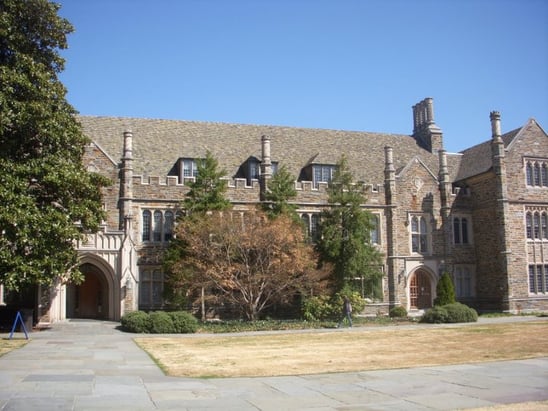
What Should You Write About in Your Why Duke Essay?
Because Duke has so many opportunities to offer students, there are many ways to approach this essay topic. Here's a list of potential ideas:
- Majors, minors, certificates, and/or classes Duke offers that you're especially interested in. This also includes Program II, where you can design your own individual degree program.
- The Focus Program, which lets first-year students take classes on unique topics.
- Duke professors whose work you admire and with whom you'd like to study or conduct research.
- Duke's Service Learning or DukeEngage programs which give students the opportunity to provide services to communities in need.
- Clubs or sports teams you'd like to join.
- The Duke Startup Challenge which helps students who want to be entrepreneurs.
- Research opportunities you'd like to have (the more specific you can be, the better).
- Internship opportunities Duke offers.
- Duke students or alumni you've met who you admire.
- Financial aid opportunities Duke offers that make it possible for you to attend.
In your response, you should choose about one or two reasons why you think Duke is the best school for you. For each reason, you should describe what Duke offers and connect it back to your interest and skills to show how you're a good match for the school.
For example, you could write that you've always been interested in global health, and you have an idea for an invention/idea that could improve global health in developing countries. You want to attend Duke to take advantage of the Duke StartupConnect to get your product out there, then participate in DukeEngage or a similar program Duke offers to try the product out in the field. Or, you may be a mechanical engineering student who wants to work with a specific professor at Pratt and take advantage of the research opportunities Duke offers to study thermal and fluids systems.
Remember to be as specific as possible to show Duke that you've done your research, and show both what you care about/want to do with the rest of your life and how Duke can help you get there.
_2.jpg?width=400&name=723px-RJ_Barrett_%26_Zion_Williamson_-_Keenan_Hairston_(cropped)_2.jpg)
Look: we get it. Duke basketball is AMAZING. But don't talk about it in your "Why Duke?" essay. Save it for Cameron Stadium. (Keenan Hairston/ Wikimedia )
A Note About Duke Basketball
Duke's basketball team has an extremely dedicated fan base, and many students choose to go to Duke at least partly because they love the basketball team. However, we strongly discourage you from using this essay to discuss your love of Duke basketball.
There are several reasons for this . First, many, many applicants mention the basketball team as a reason they want to attend Duke, so you won't make your essay unique or memorable if you give the same reason most other people do. Second, Duke is foremost an academic institution, and it wants students who are dedicated to their studies. Duke classes require a lot of work, and if you give the impression that all you'll be doing at Duke is waiting hours in line so you can be the first one in Cameron Stadium for each game, they may wonder if you'll succeed at the school.
So write about something other than the basketball team, and then once you get in, feel free to paint yourself blue and join the other Cameron Crazies.

Tips for Writing a Great Why Duke Essay
No matter how you decide to answer the "Why Duke" prompt, here are four tips you should keep in mind to make sure you stand out from the crowd and show Duke that you're a student they want to have at their school.
#1: Do Your Research
Before you start writing, you should know a lot about the opportunities Duke offers and why you want to go there. Here are some places to start your research:
- Duke website
- Duke majors, minors, and certificates
- Course catalog
- The Duke Chronicle (school newspaper)
- Duke internship opportunities
- Duke research opportunities
- Campus visit
- Meeting with an alum or current student
- Meeting with a professor
#2: Be Specific
From your research, you now have multiple reasons as to why Duke is a great school for you. Choose one or two of them to write about in your essay. The more specific you can be when answering the "Why Duke" prompt, the better. Don't just say that Duke has great classes, smart professors, and an interesting student body. Most schools have that, and the people reading your essay will wonder if you're using an identical essay for every school you're applying to.
Instead, try to mention opportunities only Duke can provide, such as specific professors, course names, extracurriculars, or research programs. The things you discuss should be things your other top schools don't offer, things that really make Duke stand out.
#3: Show Your Passion
Duke students are a passionate bunch, and Duke wants students who care a lot about their studies and their school. A generic statement like, "I am impressed by Duke's strong engineering programs" doesn't tell the school anything about you or help you stand out from other applicants.
Why does the engineering program make you so excited? How do you want to use your engineering skills in the future? Write about those things instead. Showing a passion that's unique will help differentiate you from other applicants and show Duke that you'll take your studies seriously.
#4: Make Every Word Count
The word limit on this essay means that it's going to be very short, so you want to get the most out of those words. Start with an outline of your main points: why you want to go to Duke and how you'll make the most of those opportunities at the school and after graduation, then expand from there until you hit 250 words.
This isn't the essay to tell an in-depth story about your childhood or go into flowery descriptions. Instead, make your main points strong and don't worry about adding too many embellishments to the essay.

Why Duke Essay Example
Sometimes the best way to understand what a great Duke essay looks like is to look at an example. Below is a Why Duke essay example, followed by an explanation of what makes it stand out.
- Calvin Thompson
What Makes This Essay Work?
This essay is strong in three key ways:
Shows Passion: It's clear that this student loves Duke. From gasping at his first look at campus to his mouth almost watering at the thought of going there, he's clearly committed to the school.
Mentions Specific Details: This is a short essay, but the writer still manages to mention multiple professors, programs, and subjects Duke has that he's interested in. That shows he did his research and definitely isn't using the same generic essay for each school he applies to.
Shows a Plan for the Future: His plans for the future (education + business) aren't super specific, but that's fine since most students start college not yet knowing exactly what they want to do in the future, and Duke doesn't expect you to have everything figured out already. However, he has a plan to get started and see where those interests take him, which shows motivation and initiative.
Summary: Writing a Great Why Duke Essay
The Why Duke essay is a key part of your Duke application since it lets the school know why you want to go to Duke, what you want to get out of your time there, and how Duke will prepare you for the future. In 250 words or less, you need to explain why Duke is the school you want to attend.
There are many ways to answer the prompt, but you should always make sure to do your research on the school, use specific examples, show your passion for the school, and make every word count.

What's Next?
Want to know how to answer the other Duke essay prompts? Check out our guide on the Duke essays for everything you need to know!
Is Duke an Ivy League School? Learn more about the Ivy League and whether Duke is part of it by reading our guide to Ivy League schools .
Want to stand apart from other Duke applicants? Learn how to score a perfect 1600 on the SAT , so you can increase your shot at getting into the school of your dreams!

Christine graduated from Michigan State University with degrees in Environmental Biology and Geography and received her Master's from Duke University. In high school she scored in the 99th percentile on the SAT and was named a National Merit Finalist. She has taught English and biology in several countries.
Ask a Question Below
Have any questions about this article or other topics? Ask below and we'll reply!
Improve With Our Famous Guides
- For All Students
The 5 Strategies You Must Be Using to Improve 160+ SAT Points
How to Get a Perfect 1600, by a Perfect Scorer
Series: How to Get 800 on Each SAT Section:
Score 800 on SAT Math
Score 800 on SAT Reading
Score 800 on SAT Writing
Series: How to Get to 600 on Each SAT Section:
Score 600 on SAT Math
Score 600 on SAT Reading
Score 600 on SAT Writing
Free Complete Official SAT Practice Tests
What SAT Target Score Should You Be Aiming For?
15 Strategies to Improve Your SAT Essay
The 5 Strategies You Must Be Using to Improve 4+ ACT Points
How to Get a Perfect 36 ACT, by a Perfect Scorer
Series: How to Get 36 on Each ACT Section:
36 on ACT English
36 on ACT Math
36 on ACT Reading
36 on ACT Science
Series: How to Get to 24 on Each ACT Section:
24 on ACT English
24 on ACT Math
24 on ACT Reading
24 on ACT Science
What ACT target score should you be aiming for?
ACT Vocabulary You Must Know
ACT Writing: 15 Tips to Raise Your Essay Score
How to Get Into Harvard and the Ivy League
How to Get a Perfect 4.0 GPA
How to Write an Amazing College Essay
What Exactly Are Colleges Looking For?
Is the ACT easier than the SAT? A Comprehensive Guide
Should you retake your SAT or ACT?
When should you take the SAT or ACT?
Stay Informed
Get the latest articles and test prep tips!
Looking for Graduate School Test Prep?
Check out our top-rated graduate blogs here:
GRE Online Prep Blog
GMAT Online Prep Blog
TOEFL Online Prep Blog
Holly R. "I am absolutely overjoyed and cannot thank you enough for helping me!”
- Share full article
Advertisement
Supported by
What Set the A.T.F. and an Airport Leader on the Path to a Deadly Encounter?
Bryan Malinowski was the executive director of the airport in Little Rock, Ark., and sold firearms at gun shows. Federal agents believed he was breaking the law.

By Eduardo Medina
Reporting from Little Rock, Ark.
The loud noises outside their bedroom door woke them before dawn. Bryan Malinowski bolted up and looked at his wife, Maer. “Stay back,” she remembers him saying after he reached into a drawer for his gun and loaded it.
He crept into a hallway in their home in Little Rock, Ark., and saw figures in the darkness. He started shooting, and was met with return fire.
The people shooting back at him were agents with the Bureau of Alcohol, Tobacco, Firearms and Explosives, executing a search warrant on suspicion that Mr. Malinowski had repeatedly sold guns without a license. What made this different from many such confrontations was that Mr. Malinowski was a respected official in the community, the director of Little Rock’s airport.
Mr. Malinowski shot an agent in the foot. As the agents fired back, a bullet struck Mr. Malinowski, 53, in the head, and two days later, he died in a hospital. His death has been met with outrage by his family, friends and gun rights supporters in Arkansas and beyond, who say the raid on March 19 was ill-conceived, unnecessary and a shocking case of government overreach.
“Why couldn’t this be avoided?” Ms. Malinowski asked in a recent interview at her home, where newly patched bullet holes lined the olive-toned walls.
Republicans in Congress are asking the same question. In a hearing on Thursday, members of the House Judiciary Committee grilled the director of the A.T.F., Steven M. Dettelbach, about the case, one of the latest tension points in the country’s bitter divide on access to guns.
But in a heavily armed nation where illegal gun sales are linked with other, often violent crimes, some law enforcement experts have defended both the investigation of Mr. Malinowski and the need for serving search warrants early in the morning.
Shortly after the raid, the A.T.F. revealed that it had been investigating Mr. Malinowski for months on suspicion that he had been selling a large number of firearms at gun shows without a license, sometimes soon after he bought them. The law at the time was vague, exempting people who occasionally sold guns as a hobby but not spelling out how many sales was too many.
The evidence gathered by the A.T.F. convinced a judge to sign a search warrant, leading the agents to enter his home on a quiet cul-de-sac that morning. It is unclear if they knocked, and if so, how long they waited before entering. Law enforcement experts said that most warrants specify if permission for no-knock entry has been granted; the warrant in this case did not.
Mr. Malinowski had worked at the Bill and Hillary Clinton National Airport in Little Rock since 2008 and became its executive director in 2019 — so happy about the promotion that he cried when he told his wife, she said. He earned about $256,000 a year — the highest salary on the city payroll. He loved aviation, Ms. Malinowski said, and would have been a Navy fighter pilot if not for his imperfect vision.
Many of his friends and acquaintances knew that he also loved guns, collecting and often selling them at shows around Arkansas.
“Bryan openly talked about going to the gun shows and having a booth,” said Tom Clarke, a colleague of Mr. Malinowski who is now serving as the airport’s interim executive director. “It was a hobby of his that he enjoyed. That’s all it was.”
But an affidavit released by the A.T. F., which is part of the Justice Department, paints a different picture, stating that Mr. Malinowski was selling so many guns that he should have had a federal firearms dealer license. That would have required him to conduct criminal and mental health background checks on the buyers.
In a statement, the A.T.F. said, “The Department of Justice does not comment on pending matters.” At Thursday’s hearing, Mr. Dettelbach said the agency would start an internal review of the raid after local prosecutors complete their own investigation and decide whether to press charges against the agents.
“Armchair quarterbacking police officers who were risking their lives, without evidence yet, is not the way to go here,” Mr. Dettelbach said at the hearing, responding to Republican criticism of the decision to execute the search warrant while Mr. Malinowski was in the house.
According to the affidavit, the A.T.F. started investigating Mr. Malinowski late last year after it received a tip from Canadian police officials who had received “a photograph of firearms by a confidential informant.” The A.T.F. used serial numbers on some of those firearms to trace them back to Mr. Malinowski as the original purchaser.
Several guns traced to Mr. Malinowski were recovered from crime scenes, according to the affidavit, although at least three of those crimes were marijuana possession. One of the guns was in the hands of a felon; another was found on a 15-year-old in California who was alleged to have stolen it.
The A.T.F. also found that Mr. Malinowski had purchased more than 150 guns from 2021 to February 2024, including multiples of the same models; the affidavit does not specify exactly how many of those he sold.
Agents seized about four dozen firearms during their search of Mr. Malinowski’s home and vehicle, according to records obtained by The New York Times.
A central issue in the case is whether Mr. Malinowski qualified for the so-called gun show loophole, which until recently allowed unlicensed private sellers in many states to legally sell at gun shows, out of their homes or online without running background checks. Gun rights supporters say it protected the right of private collectors to buy and sell guns as a hobby; gun control advocates say it allowed criminals to get their hands on thousands of guns every year.
In April, the Biden administration released a rule that closes the loophole by requiring people who “predominately earn a profit through the repetitive purchase and sale of firearms” to register as federally licensed firearms dealers. The rule is facing backlash from gun rights supporters — including Tim Griffin, the attorney general of Arkansas, who is challenging it in court along with a number of other Republican attorneys general.
Mr. Griffin mentioned the Malinowski case when he announced the lawsuit, arguing that “there was confusion” about the distinction between hobbyists and full-time sellers before the raid, and that even with the new rule, “there’s still a lack of clarity."
Mr. Malinowski’s defenders — including his sister, Lee Ann Maciujec — say that he viewed selling guns as a hobby, that he sincerely believed he classified as a private seller and that the raid was flawed.
“If you break into a man’s house in the South, there’s a big chance that man is going to be carrying,” said James Breeden, a former police officer and friend of Mr. Malinowski, who met him at a gun show.
Still, several law enforcement experts said that Mr. Malinowski’s large number of gun purchases and possible sales raised questions about why he never sought a license, and that he probably should have obtained one.
Joseph Blocher, the co-director of the Center for Firearms Law at Duke University, said the law is hazy about the difference between casual gun traders and profit-seeking dealers repetitively making sales.
Philip J. Cook, a professor emeritus at Duke who has researched the widespread availability of guns, said data shows that criminals overwhelmingly obtain their guns not from licensed dealers but through underground markets. An A.T.F. report released last month shows that unlicensed dealers contribute to a vast firearms black market, even if guns don’t pass directly from their hands to those of criminals.
Some details in the A.T.F.’s affidavit have been contested by Mr. Malinowski’s family, including a passage saying that he drove around neighborhoods in North Little Rock in an “erratic” manner as he pulled into parking lots and turned around. The affidavit states that Mr. Malinowski drove at night to dangerous areas “known for violent crime” and other illicit activities, but that agents did not observe him meeting anyone.
His family insists that Mr. Malinowski, who had a history of buying rental properties, was simply searching for another investment, and that he sometimes went to poker nights at friends’ homes in the area.
Video footage obtained by The Times shows that 57 seconds passed from the moment that agents placed tape over Mr. Malinowski’s doorbell camera to when shots were detected by a neighbor’s security camera. The agents were not wearing body cameras; Mr. Dettelbach said at Thursday’s hearing that while the A.T.F. has started requiring them, the policy has not yet been implemented in Little Rock.
Ken Gray, a former F.B.I. agent, said that it is standard procedure for federal law enforcement to conduct a raid early in the morning and to be armed, especially in a case involving someone who buys and sells guns.
At a recent weekend gun show in Little Rock, where buyers looked at antique Turkish rifles and browsed through a booth selling wreaths made of shotgun shells, friends of Mr. Malinowski whispered to each other about what had happened.
Cecil Taylor, 71, of Springfield, Ark., said he befriended Mr. Malinowski at the gun shows, where they would talk about rare coins and the dozen or so guns that Mr. Malinowski had for sale.
“I think he just enjoyed getting away from all the stress,” Mr. Taylor said. “When you’re at a show and you’re around a lot of people with similar interests, there’s a certain camaraderie involved. And he enjoyed that.”
Mr. Malinowski's friends from the gun shows said they only learned about his job at the airport after his death.
Kerry Murphy, who runs gun shows where Mr. Malinowski was a vendor, said nothing nefarious stuck out about him.
“If you would have told me to pick anyone in the building, he would have been the last one,” Mr. Murphy said, adding that in his experience, Mr. Malinowski mostly sold ammunition.
Mr. Murphy said that about 40 vendors had pulled out of his most recent gun show, in Little Rock, because of their concerns over the A.T.F.’s raid on Mr. Malinowski.
“They don’t want to be made an example out of,” he said. “They sell their collections, they sell their personal stuff. And they’re all scared.”
Glenn Thrush contributed reporting.
Eduardo Medina is a Times reporter covering the South. An Alabama native, he is now based in Durham, N.C. More about Eduardo Medina
Gun Violence in America
The Pandemic’s Effect: The footprint of gun violence in the United States expanded during the pandemic , as shootings worsened in already suffering neighborhoods and killings spread to new places.
A Ravaged City : Columbus, Ohio, had only about 100 homicides a year — then came a pandemic surge. With more guns and looser laws, can the city find its way back to the old normal ?
Guns in Schools: Tennessee lawmakers passed a bill to allow teachers and other school staff members to carry concealed handguns on school campuses.
Background Checks Expansion: The Biden administration approved the broadest expansion of federal background checks in decades to regulate a fast-growing shadow market that has fueled gun violence.
A Grieving Mother’s Hope: Katy Dieckhaus, whose daughter was killed in the 2023 Covent School mass shooting in Nashville, is pleading for compromise with those who see gun rights as sacred .
The Emotional Toll: We asked Times readers how the threat of gun violence has affected the way they lead their lives. Here’s what they told us .
- Bachelor of Arts in Philosophy
- Curriculum Fields
- Major and Minor Requirements
- Learning Goals
- Honors Tracks
- Track 1: Senior Thesis
- Track 2: Senior Essay
- Honors Enrollment Form
- Philosophy Prize
- Undergraduate Departmental Representatives
- The BA/MA Program
- Master of Arts in Philosophy
- Requirements for the MA Degree
- PhD Placements
- Minorities and Philosophy Chapter
- Graduate Student Speaker Series
- MA Handbook
- Faculty and Staff
- 2024 Master's Cohort
- 2023 Master's Cohort
- 2022 Master's Cohort
- Graduate Student Representatives
- Alumni Spotlight
- Spring 2022 Courses
- Requirements for the Major
- Course Schedule
- Boston-Area Consortium
- Socrates Café
- Degree Programs
- Majors and Minors
- Graduate Programs
- The Brandeis Core
- School of Arts and Sciences
- Brandeis Online
- Brandeis International Business School
- Graduate School of Arts and Sciences
- Heller School for Social Policy and Management
- Rabb School of Continuing Studies
- Precollege Programs
- Faculty and Researcher Directory
- Brandeis Library
- Academic Calendar
- Undergraduate Admissions
- Summer School
- Financial Aid
- Research that Matters
- Resources for Researchers
- Brandeis Researchers in the News
- Provost Research Grants
- Recent Awards
- Faculty Research
- Student Research
- Centers and Institutes
- Office of the Vice Provost for Research
- Office of the Provost
- Housing/Community Living
- Campus Calendar
- Student Engagement
- Clubs and Organizations
- Community Service
- Dean of Students Office
- Orientation
- Hiatt Career Center
- Spiritual Life
- Graduate Student Affairs
- Directory of Campus Contacts
- Division of Creative Arts
- Brandeis Arts Engagement
- Rose Art Museum
- Bernstein Festival of the Creative Arts
- Theater Arts Productions
- Brandeis Concert Series
- Public Sculpture at Brandeis
- Women's Studies Research Center
- Creative Arts Award
- Our Jewish Roots
- The Framework for the Future
- Mission and Diversity Statements
- Distinguished Faculty
- Nobel Prize 2017
- Notable Alumni
- Administration
- Working at Brandeis
- Commencement
- Offices Directory
- Faculty & Staff
- Alumni & Friends
- Parents & Families
- 75th Anniversary
- New Students
- Shuttle Schedules
- Support at Brandeis
Department of Philosophy
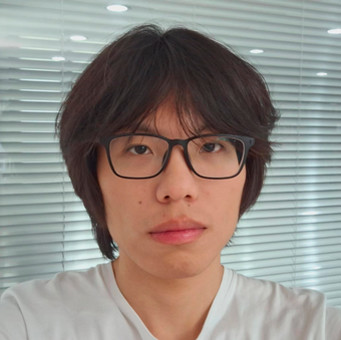
Bing Shuo graduated from Wuhan University with a BA in Philosophy. He is primarily interested in some topics in philosophy of language, metaphysics and philosophy of science. Outside of philosophy, he likes to take photographs and surf the internet.
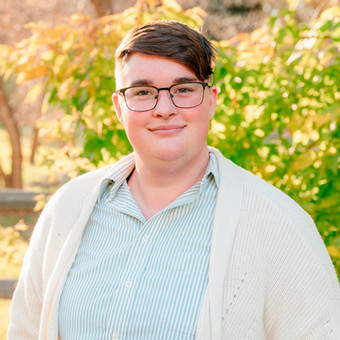
Antares holds a BA in Philosophy from Weber State University in Ogden, Utah, and is thrilled to join the Brandeis community in pursuit of their Master's. Their research interests center on the philosophy of disability and the areas that touch it: most notably, metaphysics, philosophy of mind, and applied ethics. As a disabled scholar themself, they are passionate about furthering philosophical thought and knowledge in the area and giving back to their community. In their spare time, Antares enjoys cooking, creative writing, and spending time outdoors, and on weekends, they can usually be found relaxing with a video game.
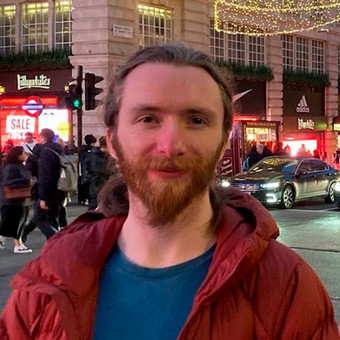
Aengus received his BA in philosophy with honors at University of California, Berkeley. What research interests him the most is philosophy of mind, including philosophical zombies, the hard problem of consciousness, subjective idealism, panpsychism, philosophy of self, and monism. When not doing philosophy he enjoys meditating, strength training, running, hanging out with friends, and exploring the world.
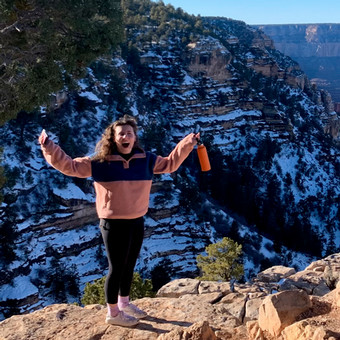
I graduated from Colgate University in 2023 with a BA in philosophy, and I've been teaching math at a middle school in Boston for the past year. I'm really excited to be starting the MA in philosophy at Brandeis this Fall. Within philosophy, I'm most intrigued by questions within the realms of phenomenology, metaphysics, and the mind. Outside of philosophy, I love nature, walking around Boston, and movies.
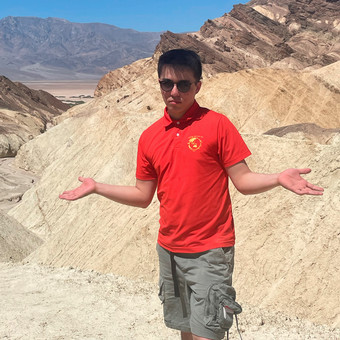
Qiyuan Feng graduated from Brandeis University with a BA in Philosophy and Mathematics. His main interest lies in philosophy of language, philosophy of science and at any intersection between artificial intelligence and philosophy. He enjoys combative sports, literature and is a traceur-wanna-be.
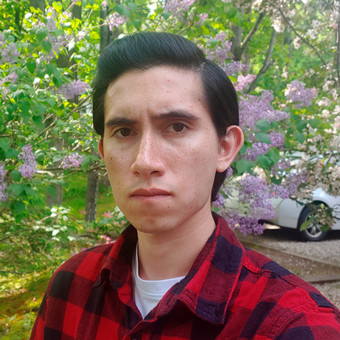
I graduated from the University of New Hampshire with a BA in philosophy. My primary philosophical passions include metaphysics and epistemology, with a focus on philosophy of mind and theories of epistemic justification. I also have an ancillary fascination with the ideas of American pragmatism, phenomenology, and mysticism - though, I do take a broad interest in a variety of other subjects and am always eager to expand my philosophical horizons. Aside from philosophy, I enjoy listening to and playing music.
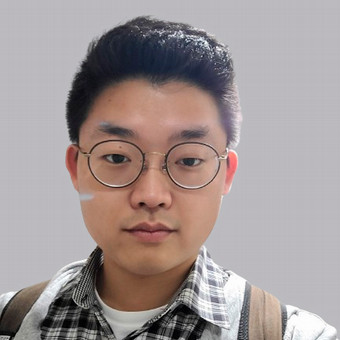
I hold a BA in Economics and International Relations and a JD from Seoul National University. After completing my degrees, I served as a judge advocate in the South Korean Army for three years. My research interests are in ethics and philosophy of law, particularly topics related to the consequentialist tradition. Outside of philosophy, I enjoy jogging, watching soccer, and spending time with friends.
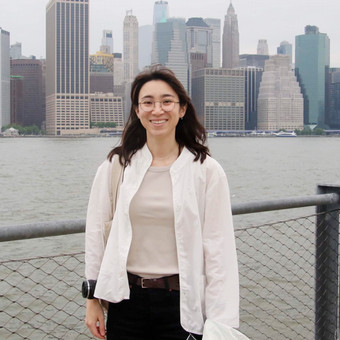
I graduated from the University of Pennsylvania with a BSE in Computer Science and minor in English. I'm interested in metaphysics and 19th and 20th century philosophy, particularly the German tradition. Outside of philosophy, I like watching movies, painting / experimenting with visual art forms, and reading fiction.
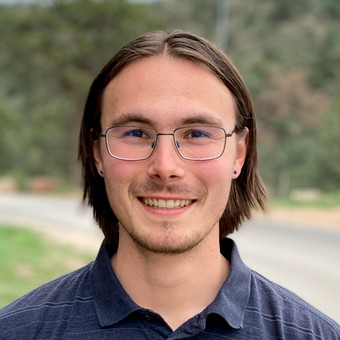
Jacob graduated from Fort Lewis College with a BA in Philosophy and a minor in Mathematics. His philosophical interests include: value theory, philosophy of language, philosophy of math, epistemology, philosophy of science, and just about anything related to logic. In addition to his academic pursuits, he enjoys rollerblading, culinary experimentation, exploration via bicycle, and trail running.
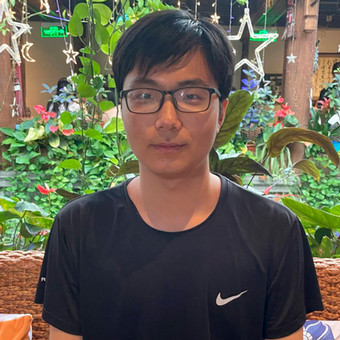
I graduated from Beijing Normal University with a BA in Philosophy. My philosophical interests mainly focus on contemporary social and political philosophy, especially egalitarianism, the debate between ideal and non-ideal theories, and feminist philosophy. I'm looking for friends who can play baseball with me in Boston.
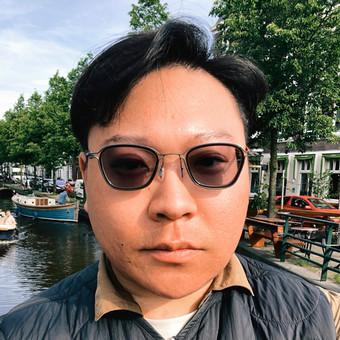
Dustin graduated from Leiden University with a BA in Comparative Philosophy, and prior to that, he was an undergrad at the University of Pittsburgh. His philosophical interests are diverse, but he is currently focused on philosophy of mind, metaphysics, and Buddhist philosophy. Outside of philosophy, he enjoys cooking, hiking, and listening to electronic music.
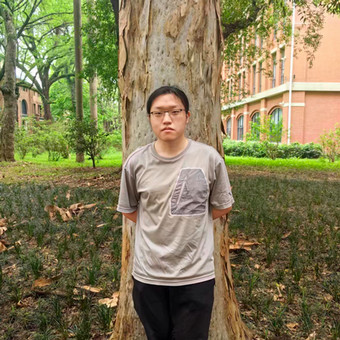
I recently graduated from Sun Yat-sen University with a bachelor's degree in philosophy. My primary philosophical interests lie in metaethics and normative ethics, especially in the areas of moral anti-realism, Kantian ethics, and virtue ethics. I am also interested in political philosophy and logic. In my spare time, I enjoy playing video games and board games, experimenting with cooking, and reading history.
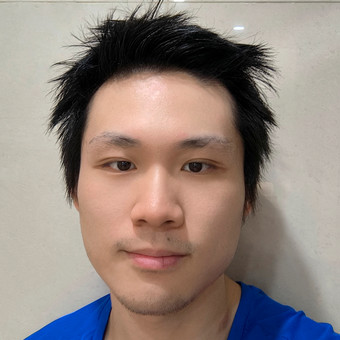
I graduated from Shanghai International Studies University with a BA in Japanese Literature, but I have been devoted to philosophy since my sophomore year. I find the questions raised by Plato and Aristotle particularly intriguing, but I prefer to philosophize in the analytical philosophy tradition. My current interests mainly lie in ethics and epistemology, but I am secretly interested in mathematics and logic. Outside of philosophy, I enjoy jogging, cooking, and computer programming.

I graduated from USC with a BA in philosophy and a minor in psychology. Within philosophy, I'm currently most interested in epistemology and theory of action, but I'm intrigued by lots of random stuff as well. Outside of philosophy, I'm a massive music lover - I love alternative pop and rock the most I think, but I'm very focused and not as expansive. I also like hanging out and changing minds.

"I received my BA in Philosophy from Duke Kunshan University and an MA in Philosophy from King's College London. My research primarily focuses on social epistemology, particularly feminist social epistemology. I'm also interested in the intersections of social epistemology, philosophy of language, and philosophy of mind. In my spare time, I enjoy traveling and photography. Check out my photography insta account at lifeofyjy! Feel free to reach out if you'd like to model for me!"
- Undergraduate Program
- Graduate Program

IMAGES
VIDEO
COMMENTS
Juris Doctor Application Information. Duke Law School offers a JD program that is rigorous, relevant, innovative and interdisciplinary. First year students begin their study of law through the traditional core courses of civil procedure, constitutional law, contracts, criminal law, property, and torts. At least one first-year course is a small ...
Legal Analysis, Research, and Writing for International Students. Duke Law School recognizes that LLM students will be writing in English for US lawyers and clients during their careers. It therefore requires as part of the LLM curriculum a one-semester legal analysis, research, and writing course. The course trains students in US-style ...
LENS Essay Series: "Reviving the Right to Rescue: Analyzing International Law on the Use of Force for Hostage Rescue in the 21st Century". One of the grimmest aspects of recent conflicts has been the proliferation hostage-taking. While this unconscionable tactic has been part of warfare since virtually the beginning of armed conflict, it ...
Hear about possible changes to the law admissions process and how to get accepted [Show Summary] Mark Hill, Assistant Dean of Admissions at Duke Law, has worked in admissions for twenty years. In this episode, he shares his thoughts on how law schools will be affected by a potential recession and the possible elimination of a test requirement.
The Duke Law Journal (DLJ) is excited to announce its first-ever online essay competition! The competition is open to all current Duke Law students (including LLMs) and recent graduates (Classes of 2018, 2019, 2020, and 2021). Up to two winning submissions will be selected for publication in the Duke Law Journal Online in Spring 2022.Authors of the winning submissions will be awarded a $500 ...
Duke Law School previously required a personal statement and offered applicants two optional essay prompts: a diversity statement and a statement of interest. After the Supreme Court's decision ...
Beyond the Personal Statement, Duke Law School requires applicants to submit responses to one or two short-answer essay prompts and offers an additional optional essay opportunity. Crafting a compelling response to each essay gives the school a better idea of who you are and your views of the law and the world.
For the 2023-2024 application cycle, Duke is requiring all students to answer one prompt and then they have the choice to answer up to two additional prompts. For students planning on studying abroad at Duke Kunshan or taking a gap year, there are additional prompts as well. In this post, we will go over all of the Duke prompts and breakdown ...
New Duke Law Requirement: Short Answer Essay. Application Process. Just a head's up that Duke Law now requires each applicant to submit one to two 250-500 word short-answer essays. This change likely comes from the recent SCOTUS decision on affirmative action. Here are the prompts, which can also be found on Duke Law's website :
The Duke Law Journal (DLJ) is excited to announce its second-ever online essay competition!The competition is open to all current Duke Law 2Ls who are not on an exclusive journal. Up to two winning submissions will be selected for publication in the DLJ Online in Fall 2023.Author(s) of the winning submission(s) will be awarded a $250 cash prize, * funded by Cleary Gottlieb Steen & Hamilton ...
The Duke Law Journal (DLJ) is excited to announce its third online essay competition! The competition is open to all current Duke Law 2Ls who are not on an exclusive journal. Up to two winning submissions will be selected for publication in the DLJ Online in Fall 2024.Author(s) of the winning submission(s) will be awarded a cash prize and Research Editor positions on DLJ.
Citation. George C. Christie, An Essay on Discretion, 1986 D uke L aw J ournal 747-778 (1986) Available at: https://scholarship.law.duke.edu/dlj/vol35/iss5/1
Below is a Why Duke essay example, followed by an explanation of what makes it stand out. I love many things, but learning and sports top the list. The moment I stepped onto Duke's campus, I leaned over to my mother, gasping, and said, "Whoa," even before beginning my tour. I was stunned to immediately see signs of my loves everywhere.
This short essay explains why two cases involving gun rights — United States v. Rahimi and Garland v. Cargill — pose a serious test of the Supreme ... Matthew D. Adler at Duke University School of Law, Brian Bix at University of Minnesota Law School. U.S. Constitutional Law: Separation of Powers & Federalism eJournal.
Elektrostal , lit: Electric and Сталь , lit: Steel) is a city in Moscow Oblast, Russia, located 58 kilometers east of Moscow. Population: 155,196 ; 146,294 ...
Summer Term 2023 JD-LLM-LE Summer Immersion (2L JD-LLM-LE students only) Monday, May 8 - Friday, June 2 Durham, North Carolina Master's Program in Judicial Studies (MJS students only) Monday, May 22 First Day of Class Friday, June 16 Last Day of Class Leiden Summer Institute Monday, June 19 First Day of Class Friday, July 14 Last Day of Class Monday, July 17 - Weds, July 19 Reading and ...
Elektrostal. Elektrostal ( Russian: Электроста́ль) is a city in Moscow Oblast, Russia. It is 58 kilometers (36 mi) east of Moscow. As of 2010, 155,196 people lived there.
Elektrostal is a city in Moscow Oblast, Russia, located 58 kilometers east of Moscow. Elektrostal has about 158,000 residents. Mapcarta, the open map.
Moscow Oblast ( Russian: Моско́вская о́бласть, Moskovskaya oblast) is a federal subject of Russia. It is located in western Russia, and it completely surrounds Moscow. The oblast has no capital, and oblast officials reside in Moscow or in other cities within the oblast. [1] As of 2015, the oblast has a population of 7,231,068 ...
Bryan Malinowski was the executive director of the airport in Little Rock, Ark., and sold firearms at gun shows. Federal agents believed he was breaking the law. By Eduardo Medina Reporting from ...
I hold a BA in Economics and International Relations and a JD from Seoul National University. After completing my degrees, I served as a judge advocate in the South Korean Army for three years. My research interests are in ethics and philosophy of law, particularly topics related to the consequentialist tradition.